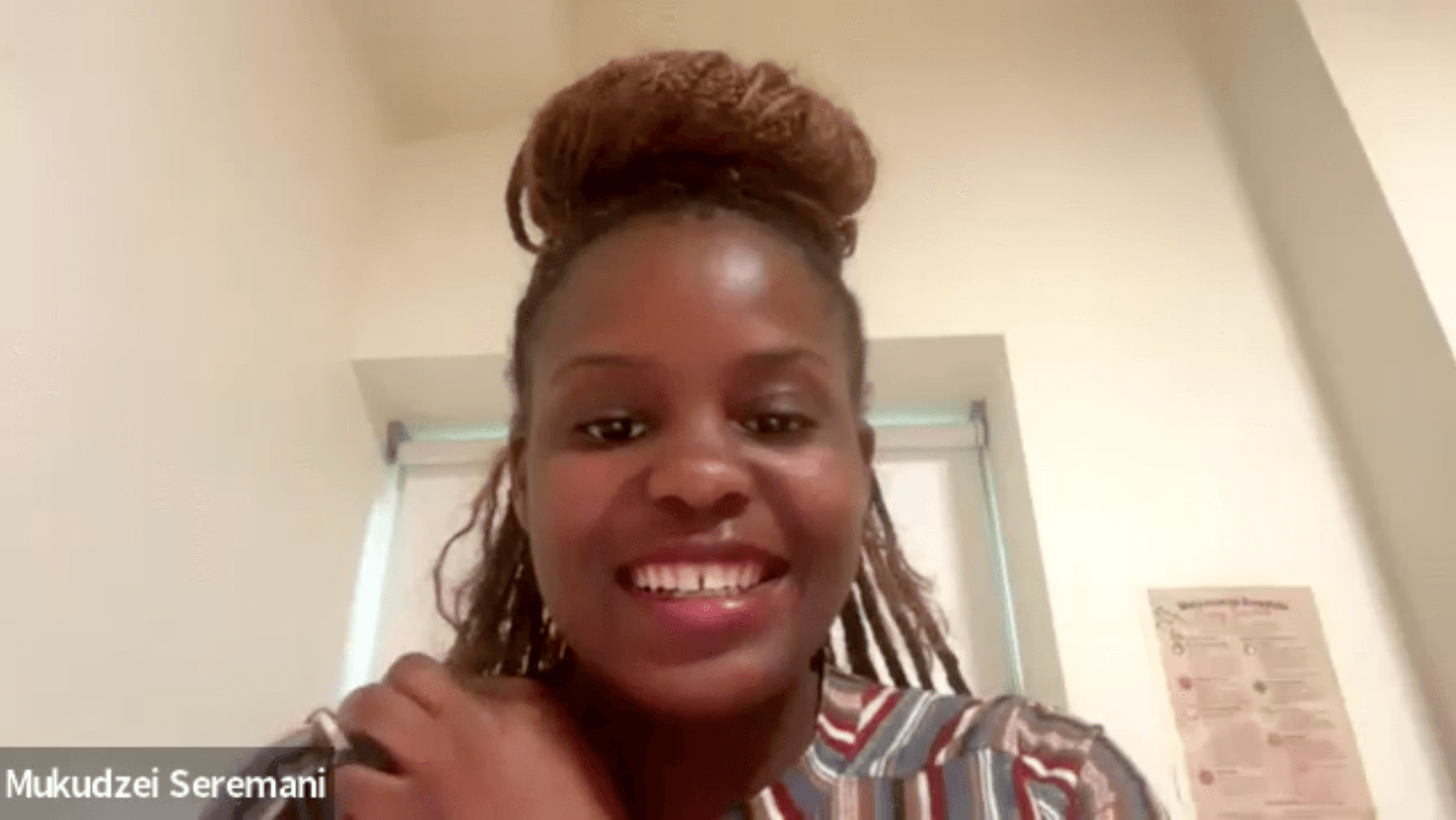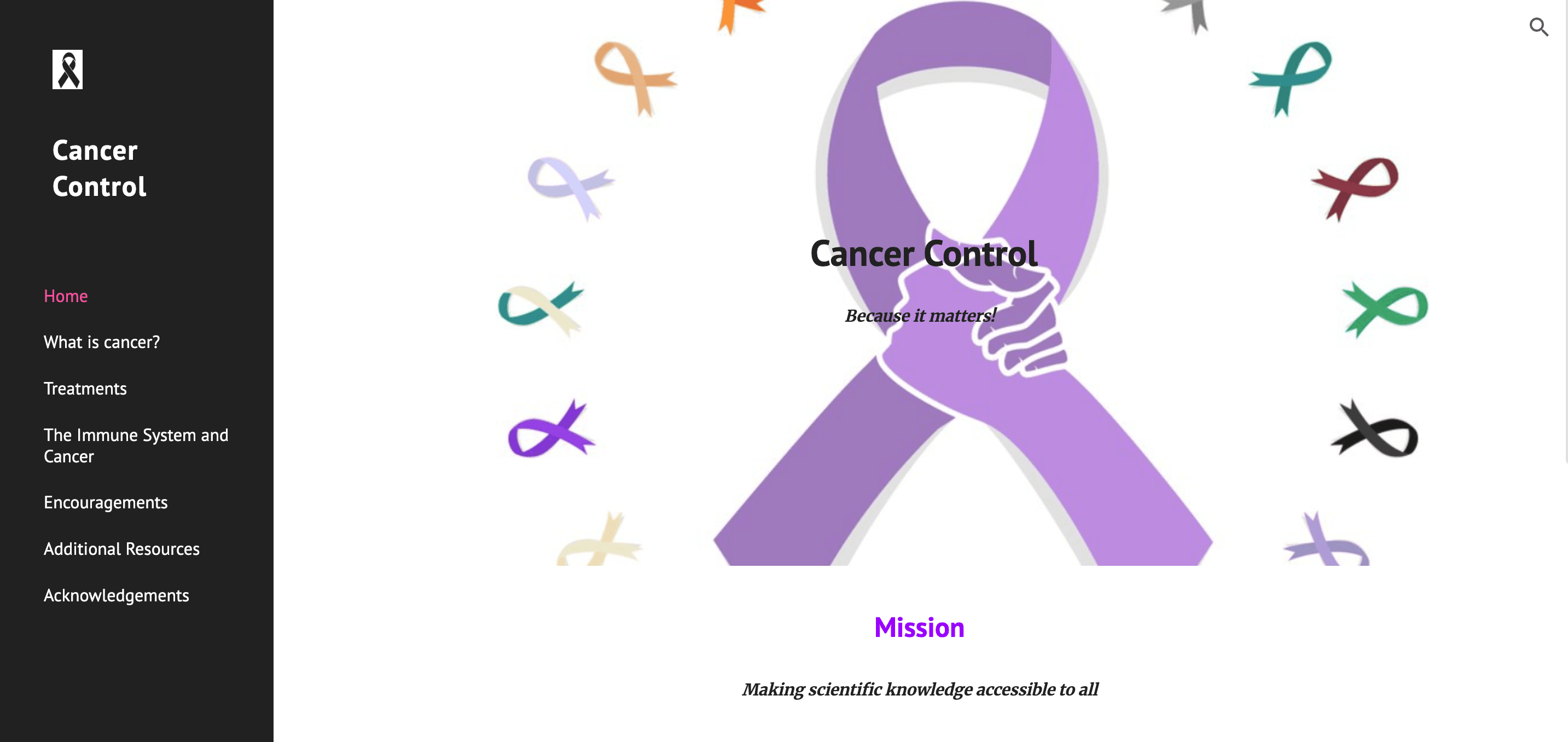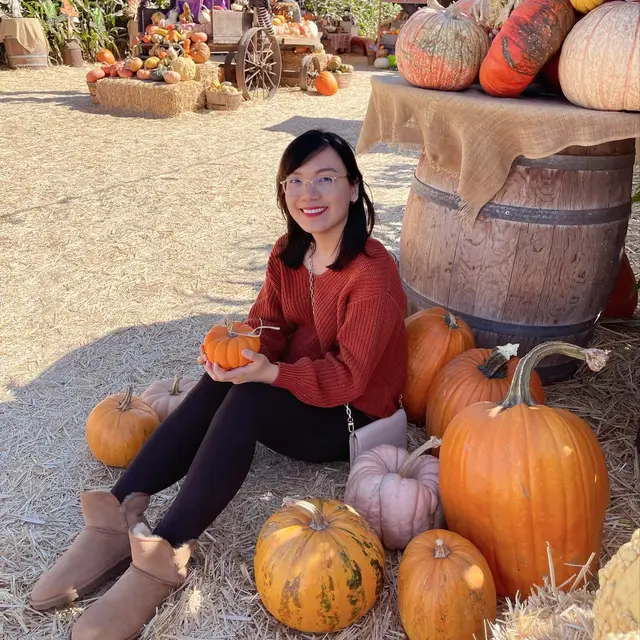Cervical Cancer Research Student Story: Mukudzei's Journey from Zimbabwe to Bowdoin
7 minute read
For Mukudzei Seremani, a high school research project in Harare, Zimbabwe, led to something far bigger than she ever imagined. What began as a personal mission to understand why cervical cancer remains deadly despite the availability of the HPV vaccine turned into a transformative journey of discovery, mentorship, and global purpose.
Through Polygence, Mukudzei worked closely with her mentor, Selena Lorrey, who encouraged her to apply to Bowdoin College, the same school she had attended. Mukudzei was accepted with a full need-based scholarship, which was an incredible achievement. But getting to Boston was still a major hurdle. To help her make the trip, Selena started a GoFundMe campaign. Thanks to that support, Mukudzei’s dream of attending college in the U.S. came true.
We had a chance to reconnect with Mukudzei after her first year at Bowdoin to learn more about her experiences, research and future plans.

How did you first hear about Polygence?
I first heard about Polygence at Africa Science Buskers when I won my UltraMed Healthcare Award on a project I was working on. That’s how I kind of just heard a little bit about it. I did my own research on what Polygence is about, and I was quite interested. I thought it would be a nice way to give back to my community. I had done research, but I felt like the information I found wasn’t really impacting the people I cared about.
What was your Polygence experience like?
Oh my gosh, it was amazing. I love my mentor. She’s like my sister now. Her name is Selena Lorrey. She’s a Bowdoin alum, Class of 2016, and she just graduated from Duke. She held my hand through the research and even after. She taught me what it means to be a science researcher and gave me confidence. My journey really started with Polygence. It gave me Bowdoin and gave me the people I care about.
Connect With Your Ideal Mentor
Find out how having a mentor can help you explore your interests, stay motivated, and dive into a research project in high school.
You ended up at Bowdoin too! How did that happen?
While we were working on my research project on cervical cancer and drug development, we got to know each other through weekly Zoom calls. When it came time for my college search, I told her I didn’t want to go anywhere cold. And she said, “But I went to Bowdoin, and I think you'd really like it.” So I looked it up and thought, maybe I can get over the cold. I applied ED and I got in.
And how is life at Bowdoin?
It’s really cold! But the people are really nice, the school is beautiful, and I love my professors. Selena actually introduced me to one of her favorite professors in the biology department when she came with me to campus. Now I’m going to be working with that professor over the summer.
What is your summer research about?
I’m working with Candida albicans. We’re going to find out where certain parts of the mRNA that cause it to change its shape are found in different parts of the albicans. It’s hard, and I don’t understand all of it yet, but I hope by the end of summer I will!
What inspired you to study cervical cancer?
I lost my aunt. She died from cervical cancer, but at the time we didn’t know what was going on. It was just a lack of knowledge. That really hit close to me. I didn’t want that to happen to anyone else, especially the people I love. I wanted to study what it is and how we can prevent it.

Cancer Research Topic Ideas for High School Students
High school students interested in cancer research projects can approach the subject from a wide range of angles—scientific, social, cultural, and technological. Choosing a topic that’s meaningful to you, as Mukudzei did, can make the research more impactful and personally rewarding.
Here are a few research directions to consider:
Public Health Access: What are the barriers to HPV vaccine access in rural or low-income communities?
Traditional vs. Modern Medicine: Can natural remedies or plant-based compounds show potential in cancer symptom relief or prevention?
Awareness Campaigns: How do social media or peer-led programs affect cancer screening rates among teens and adults?
Health Education Disparities: How does lack of cervical cancer education contribute to late-stage diagnoses?
Scientific Exploration: What is the role of mRNA and gene expression in cervical or other cancers?
Students can pursue projects that involve scientific experiments, literature reviews, community engagement, or digital tools like websites and infographics.
What did you do with your research?
At first, I wrote a research paper. I had this question: why are so many people dying from cervical cancer if the HPV vaccine is 100% effective? I found that the vaccine is very effective, but it’s not widely offered, especially in Zimbabwe. I got an award for that paper at Africa Science Buskers. But later, I felt like I was happy on stage, but was it helpful?
So when I heard about Polygence, I thought, this might be my chance. With Selena, we took the project to another level. Since the vaccine isn’t always available, we looked at how people use herbs to treat colds and flus, and wondered if that knowledge could help with cervical cancer. We studied the chemical structures of herbs like turmeric and picked ones with antioxidant properties.
I built a website, translated it into my native language, and during my gap year, I visited local clinics in my community to share the information. I also shared it in WhatsApp groups, and my dad, who’s a board member in our community, helped spread the link. That was really helpful.
Explore Passion Projects That Ignite Your Curiosity
🔥 Discover unique project ideas that inspire creativity and help you stand out.
What advice would you give to other students?
Keep dreaming. Always remember where you’re coming from and what you want to achieve. I know research is hard and frustrating sometimes. But Polygence gives you someone who is knowledgeable. These mentors are great people. If it wasn’t for my mentor, I wouldn’t be at Bowdoin or have the confidence I do now. You just have to start from somewhere.
Tips for Starting a Cancer Research Project in High School
Starting a cancer research project as a high school student might sound intimidating, but with the right support, it’s entirely possible. Whether you're interested in cervical cancer like Mukudzei, or another area of oncology, here are some steps to get started:
Start with personal motivation. Projects that connect to your own experiences or community challenges tend to be the most compelling and sustainable.
Ask big questions. Mukudzei started with, “If the HPV vaccine is 100% effective, why are people still dying from cervical cancer?” Your question is your research foundation.
Find a mentor. Programs like Polygence match students with experts who help refine your project and guide your learning journey.
Use accessible tools. Not all research requires a lab—Mukudzei built a website, created translated resources, and leveraged WhatsApp to share findings.
Share your work. Don’t be afraid to publish your findings, submit to cancer research competitions, or present in your community.
Cancer research at the high school level isn't about finding a cure—it's about cultivating critical thinking, research literacy, and a deeper understanding of the world.
What’s next for you?
I got a Global Citizens Fellowship and was supposed to go to Nigeria this summer to do cervical cancer awareness work with the Slums and Rural Health Initiative. But with all the travel uncertainties, I deferred it to next summer. I hope I can do it then. I just want to learn from other people, grow, and make an impact.
Do you know what you want to study long-term?
I'm still figuring it out. I think I’ll major in biochemistry. I really love the department here and the professors. I tried Econ and it was too much math. I’ll probably try sociology next semester. I know what I don’t like, and I’m figuring out what I do like. I know I want to do something related to research and global impact.
Any final thoughts?
I’m so grateful. My journey started with Polygence. Every time someone asks how I found out about Bowdoin, I say, “There’s this program called Polygence, and I got matched with a research mentor who went to Bowdoin.” People are surprised I was doing research in high school. It’s a really good opportunity, and everyone who gets it should take advantage of it.
How Polygence Supports High School Research
Polygence is designed to allow high school students to pursue original research with guidance from expert mentors and collaboration with student pods. These projects often become defining academic experiences—especially for students exploring complex topics like cancer biology, global health, or biomedical ethics.
Mukudzei’s experience is a powerful example. Through Polygence’s core program, she connected with Selena Lorrey, a mentor who not only guided her cervical cancer research but also helped her access higher education opportunities. With regular Zoom meetings, research planning, and long-term mentorship, students don’t just complete a project—they build confidence and a deep understanding of how research works in the real world.
Whether students are investigating scientific questions or community health challenges, Polygence provides both the structure and flexibility to help them turn their curiosity into action.
🤔 Turn Curiosity into Impact – Get Started Now 🌎
Research isn't just for graduate students or people who wear white lab coats. Your research project can have a big impact.
